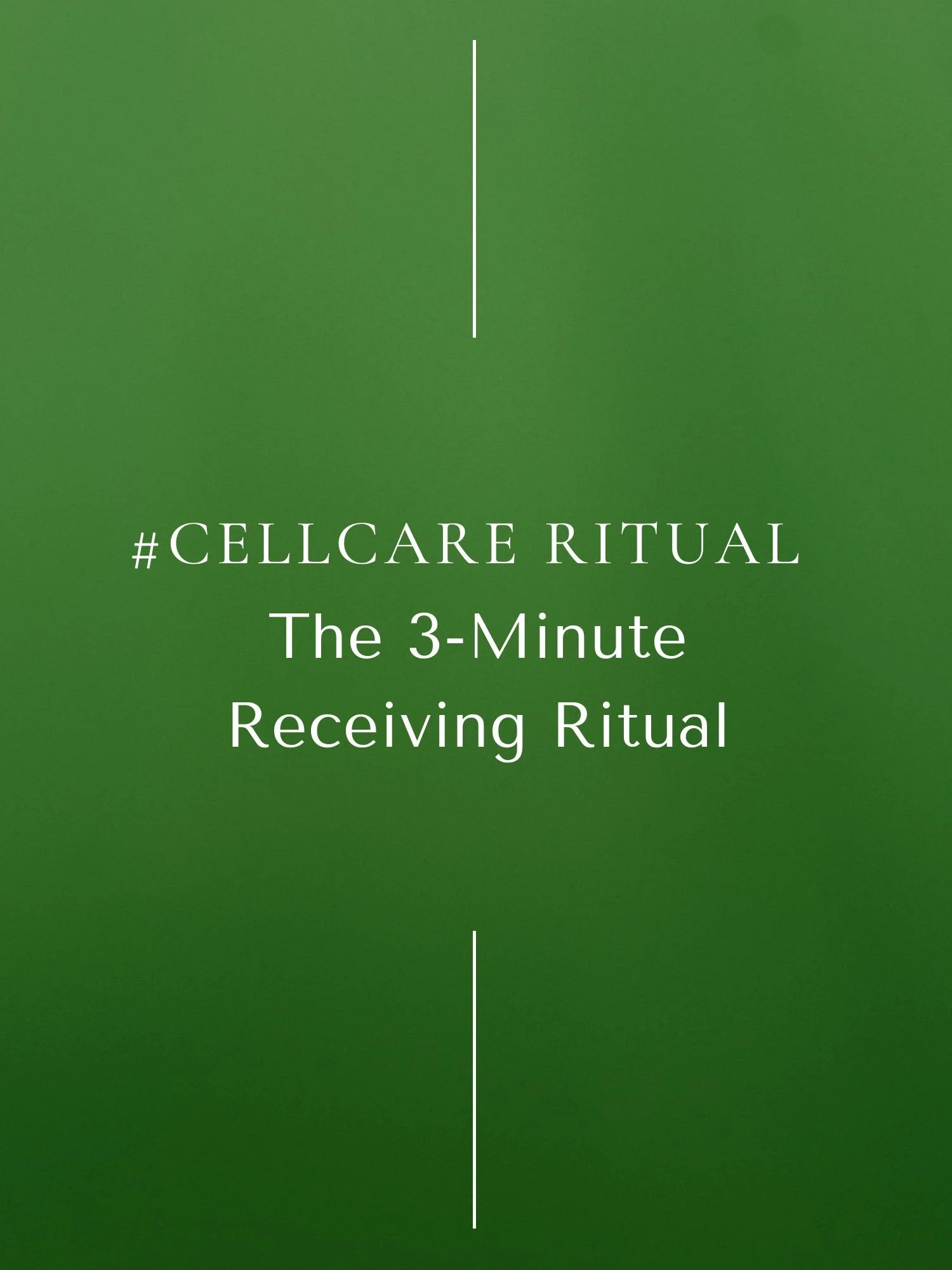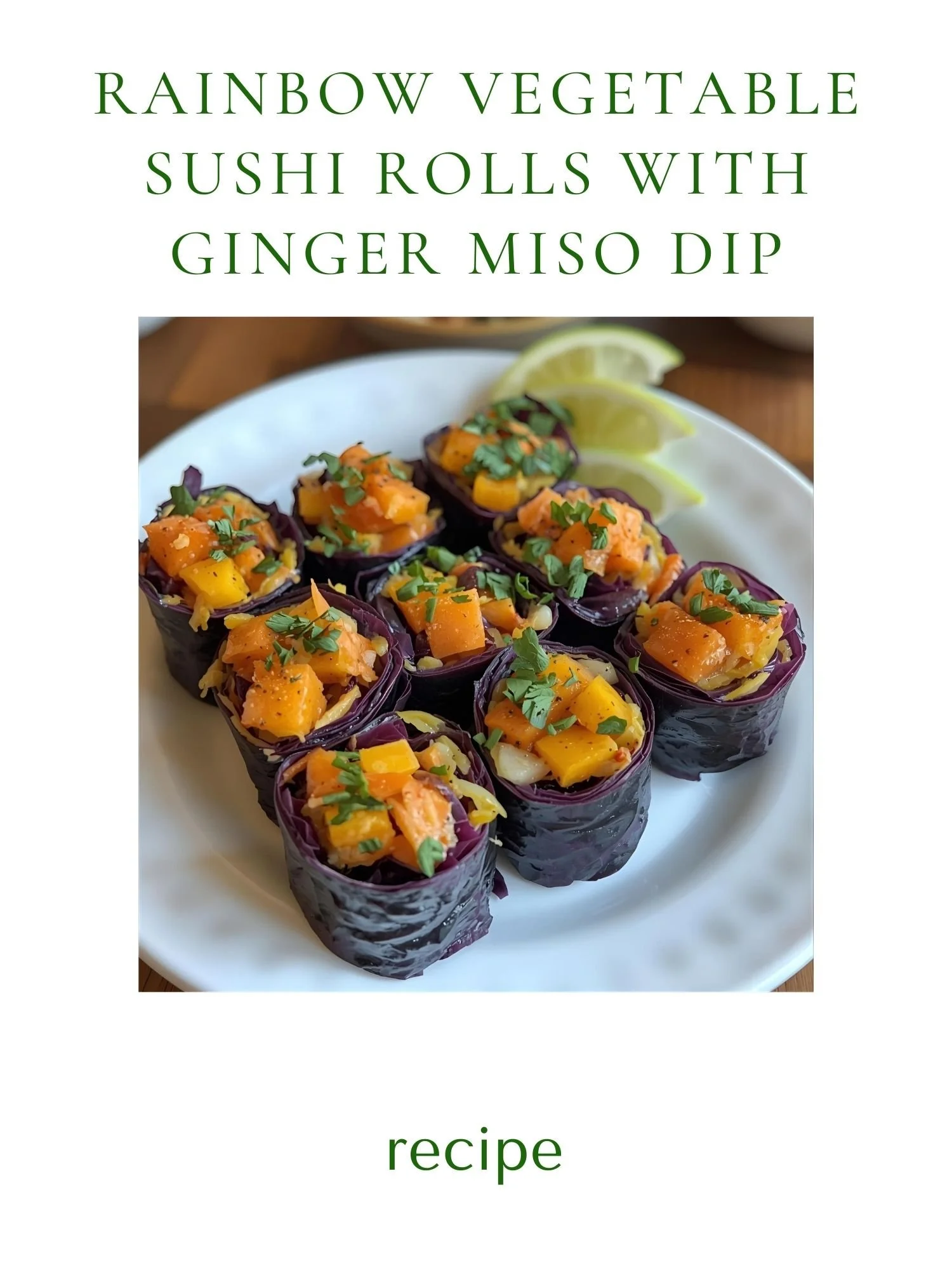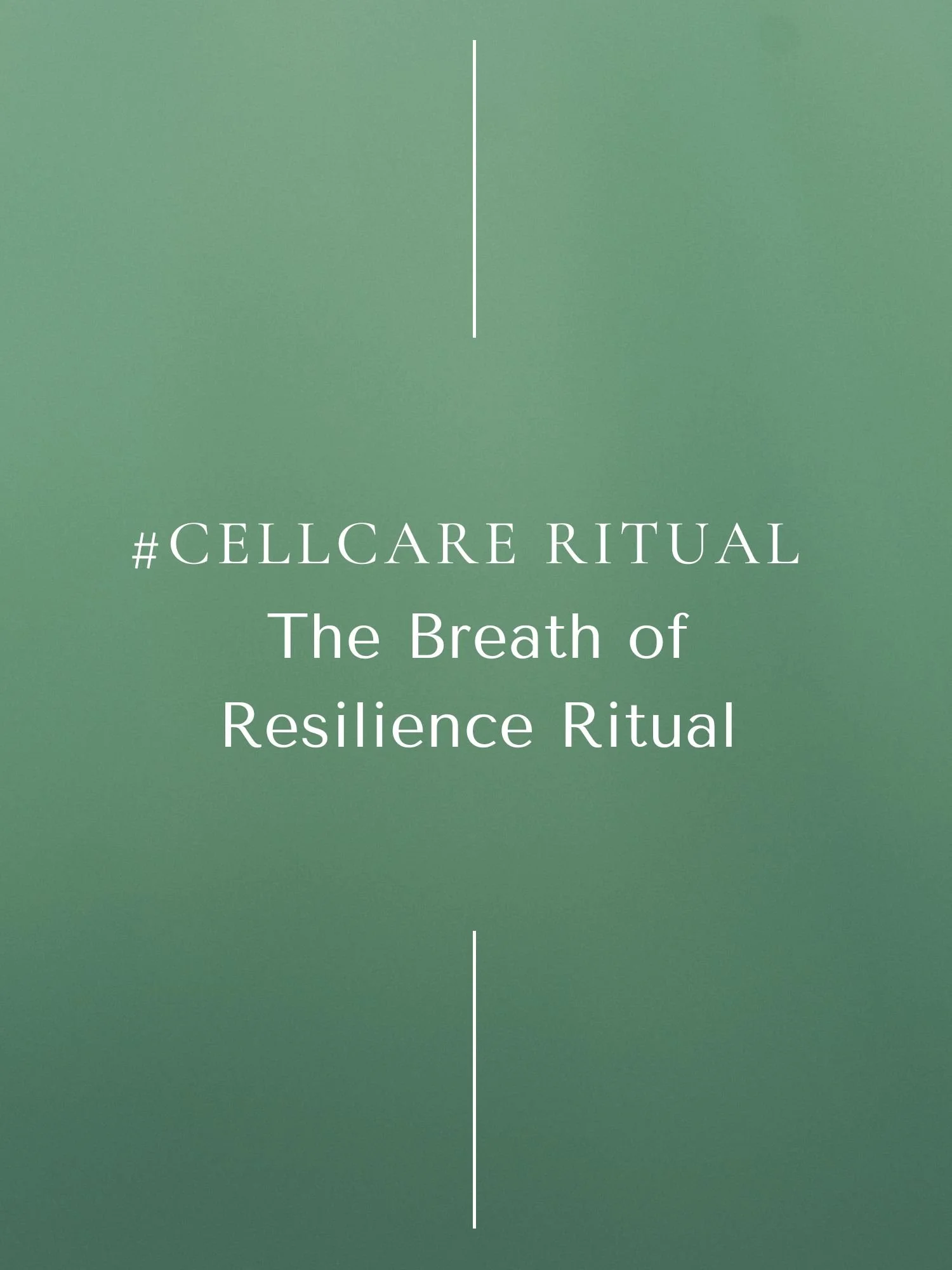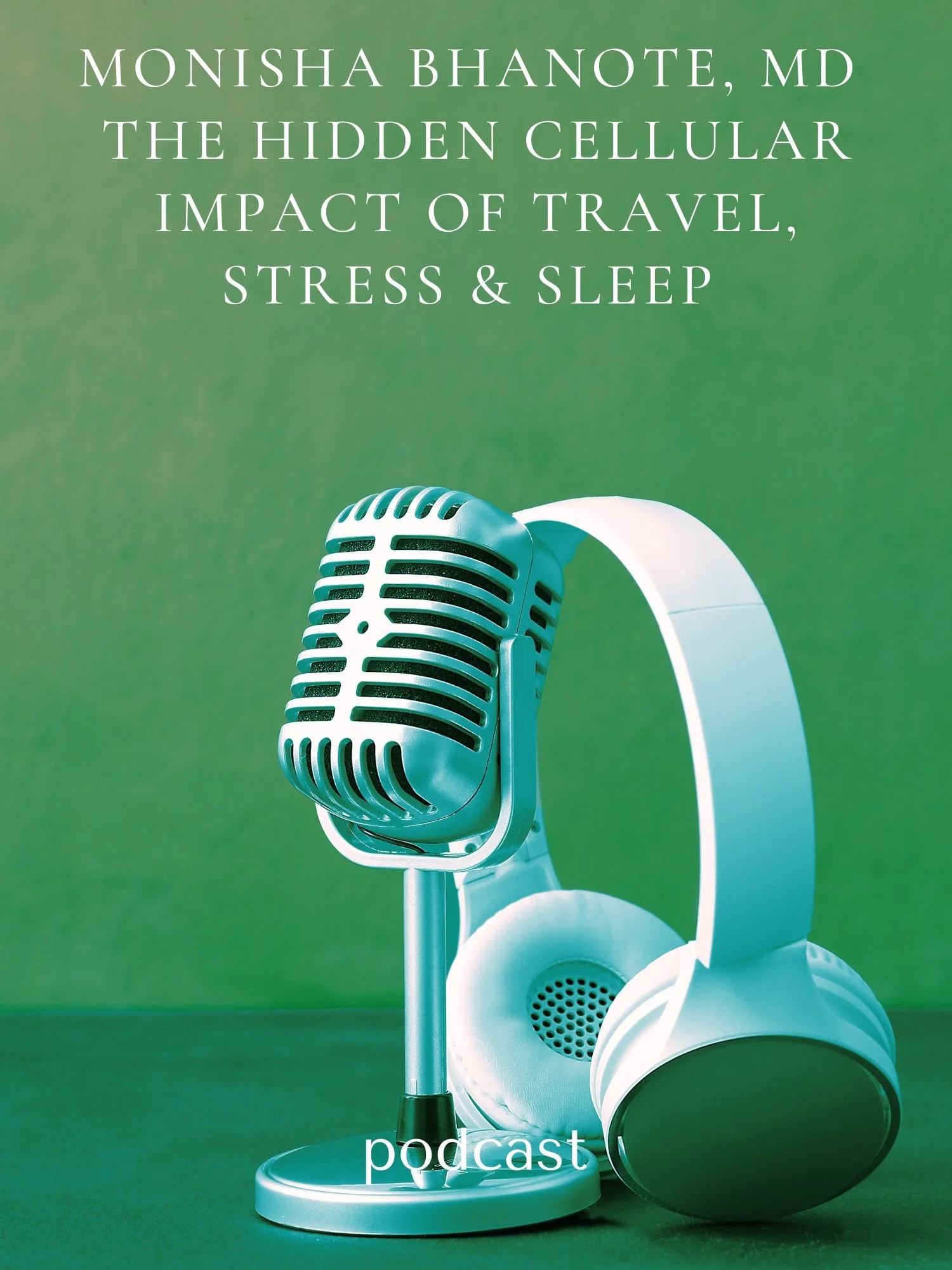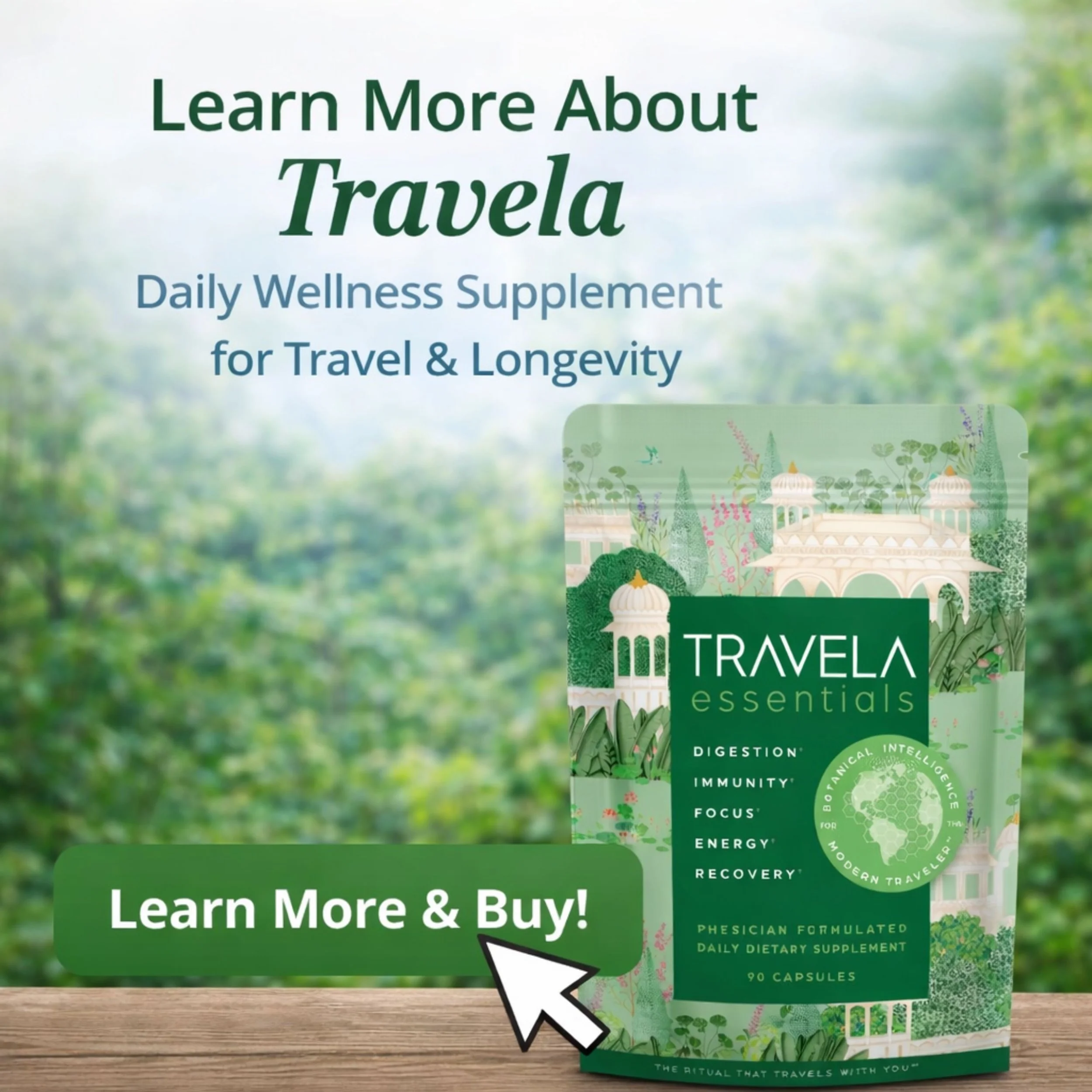The Immune Travel Code | Gut, Sleep & Adaptogens to Stay Resilient
Welcome to Your New Travel Code
Travel is invigorating—but let’s be honest, it’s also incredibly taxing on the body. Behind the Instagram-worthy snapshots and carry-on capsule wardrobes lies a deeper truth: travel dysregulates your immune system, disrupts your gut, robs your sleep, and throws your internal rhythm into chaos.
You feel it in your digestion, your brain fog, your low energy, and sometimes days later, in that all-too-familiar scratchy throat.
But here’s the good news: there’s a way to travel that doesn’t leave you rundown.
As a longevity lifestyle physician who’s logged thousands of air miles while staying resilient and energized, I’ve developed a system I call The Immune Travel Code—a science-backed, plant-powered approach to supporting your gut, your sleep, and your stress response using time-tested rituals and adaptogens.
Let’s explore how to reset your body before, during, and after your travels—so you can feel your best wherever you land.
ARTICLE CONTINUES BELOW
Why Travel Wrecks Your Immune System
1. Circadian Confusion = Immune Suppression
Your immune system doesn’t operate in a vacuum—it runs on a schedule.
Every 24 hours, your body follows a master clock called the circadian rhythm, which governs everything from hormone production to immune cell activity. When you cross time zones or stay up late to catch flights, your internal clocks become misaligned. Studies show that even short-term circadian disruption can lower the function of natural killer (NK) cells—your body’s first line of defense against viruses.
2. Airports + Airplanes = Environmental Stress Test
Let’s take a look at your typical travel day:
Pre-dawn wake-up
Long TSA lines
Dehydrating airplane air
Recycled pathogens
Junk food on-the-go
Every part of this routine activates your HPA axis, your body’s stress response system. Chronic cortisol elevation weakens immunity, disrupts digestion, and impairs sleep quality—all within hours of boarding.
3. Gut Disruption Is Inevitable
Here’s something many travelers don’t realize: within 24 hours of travel, your gut microbiome begins to shift. Stress, processed foods, irregular eating, and poor hydration weaken the diversity and function of your gut bacteria.
And since 70–80% of your immune system lives in the gut-associated lymphoid tissue (GALT), the body's largest immune organ and a central command center for immune defense, this matters deeply.
The Immune Travel Code Pillars
Now that we understand the physiological hit our body takes during travel, let’s flip the script.
These are the four foundational pillars of the Immune Travel Code—designed to protect your cells, restore your energy, and keep your immune system strong.
Pillar 1: Support the Gut Microbiome
Your gut is the gatekeeper of immune intelligence. When it’s thriving, your whole body is more resilient.
How Travel Disrupts the Gut:
Airplane meals and processed snacks lack fiber and prebiotics.
Dehydration thickens mucus membranes, reducing protective barriers.
Stress alters gut motility, increasing constipation or diarrhea.
Foreign pathogens and unfamiliar foods challenge gut immunity.
#CellCare Gut Rituals:
Before Travel: Eat high-fiber, prebiotic-rich foods like oats, onions, garlic, and cooked greens.
During Travel: Bring travel-sized sauerkraut packets, coconut yogurt, or shelf-stable probiotics.
Daily Digestive Tea: Sip on warm ginger tea with fennel and lemon. Or make a mini tincture with triphala and ginger root for bloat and regularity.
Hydration Upgrade: Use mineralized water with lemon or pinch of Himalayan salt to aid digestion and cellular hydration.
Travel Tip: Pack your own turmeric-oregano-cumin spice blend for immune-boosting travel meals.
Pillar 2: Adaptogens for Stress + Immune Regulation
Adaptogens are nature’s resilience tools—herbs that help your body adapt to physical, emotional, and environmental stressors.
They modulate the HPA axis, lower cortisol, and support immune response without overstimulating your system.
My Favorite Travel Adaptogens:
Holy Basil (Tulsi): Anti-viral, uplifting, and great for respiratory health.
Ashwagandha: Grounding and sleep-regulating, helps prevent stress burnout.
Schisandra Berry: Antioxidant-rich, supports liver detox and energy.
Reishi Mushroom: Immune modulator that supports restful sleep and lung function.
Rhodiola Rosea: Great for jet lag and altitude changes—boosts oxygen and stamina.
Travel Tip: Mix a blend of tulsi, ginger, reishi, and lemon peel in a tea sachet. Sip mid-flight or in your hotel room.
Remember, adaptogens support non-specific stress resistance by regulating the HPA axis and key immune mediators (e.g., cortisol, NO, HSP70, JNK1, and FOXO). Their action mechanisms help lower inflammatory cytokines, stabilize stress hormone levels, and bolster both immune and neurological resilience, as confirmed in clinical and molecular studies
Pillar 3: Prioritize Sleep as an Immune Prescription
Sleep is the body’s master repair system.
Even one night of poor sleep can:
Increase inflammation markers
Reduce vaccine effectiveness
Lower white blood cell activity
Impair your ability to fight infections
And guess what’s most disrupted while traveling? Sleep.
Immune-Supporting Sleep Tips:
Local Light Reset: Get 15–30 minutes of outdoor sunlight within 2 hours of waking to realign your circadian clock.
Block Blue Light: Use red or amber glasses at night to promote melatonin release.
Wind-Down Rituals: Magnesium glycinate, L-theanine, and aromatherapy (like lavender or vetiver) can calm your nervous system.
Sleep Tools: Bring a blackout mask, earplugs, and natural sleep sprays to recreate your bedtime environment on the go.
Travel Tip: No matter your destination, prioritize going to bed by 10 PM local time on the first night.
Pillar 4: Cellular & Mitochondrial Resilience
At the cellular level, travel is a form of oxidative stress. Altitude, EMFs, poor food choices, and dehydration all impair mitochondrial function—the energy-producing engines in your cells.
When your mitochondria are under siege, your immune system weakens, energy drops, and recovery slows.
Key Nutrients for Cellular Defense:
Glutathione: Master antioxidant for immune health and detox (found in avocado, spinach, and broccoli sprouts).
Vitamin C: Buffers oxidative damage and supports white blood cell activity.
Curcumin: From turmeric, powerful anti-inflammatory and mitochondrial protector.
Magnesium + CoQ10: Improve mitochondrial energy production and reduce fatigue.
Travel Tip: Travel with walnuts, freeze-dried blueberries, and 80% dark chocolate for polyphenol support.
Your 24-Hour Immune Travel Blueprint
Travel doesn’t just require a packing list—it requires a cellular rhythm reset.
This simple 24-hour protocol is designed to support your immune system, realign your circadian clock, and reduce travel-related inflammation—before, during, and after your flight. Whether you’re crossing one time zone or ten, these small rituals can make a big impact on how you feel and function when you land.
Let’s walk through your immune-supporting day—from pre-boarding to post-flight grounding.
Before You Fly
Sleep at least 7–8 hours the night before.
Eat a warm, cooked, prebiotic-rich meal.
Hydrate with mineral water and herbal tea.
Take your adaptogens (ashwagandha or rhodiola) with breakfast.
Pack nourishing snacks and a herbal thermos tea.
During the Flight
Drink 8 ounces of water every hour—add electrolytes if flying more than 3 hours.
Stretch and move regularly to support lymphatic flow.
Avoid caffeine and alcohol—they dehydrate and suppress immunity.
Sip immune-supportive tea or warm lemon water.
Use saline nasal spray and wear a mask in crowded areas if needed.
After You Land
Ground your bare feet on natural surfaces like grass, sand, or stone.
Get 15–20 minutes of outdoor sunlight the next morning.
Eat a warm, cooked plant-based meal with garlic, ginger, and turmeric.
Take your adaptogen blend—Reishi and Tulsi are great for post-travel recovery.
Unwind with a calming wind-down ritual like a warm bath, herbal tea, or meditation.
Aim to sleep by 10 PM local time to help your cells repair and realign.
Final Thoughts | You Deserve to Travel Well
You don’t need to choose between adventure and wellbeing. With the right rituals, travel becomes more than movement—it becomes a practice of resilience.
The Immune Travel Code isn’t about perfection. It’s about intentional support—meeting your body’s needs while embracing new environments with curiosity and care.
Whether you're crossing time zones or simply escaping for a weekend reset, remember:
Your gut is your immune command center. Feed it well.
Your sleep is your superpower. Prioritize it.
Your stress response is adaptable. Use your adaptogens.
Your cells are listening. Speak to them with ritual, nourishment, and rest.
Ready to Travel Differently?
Join the weekly #CellCare Wellness Newsletter and receive exclusive downloads, science-backed rituals, and longevity strategies to support your body on every journey.
Because real travel wellness isn’t found in a TSA bin—it’s built from the inside out.
Until next time,
~ Dr. Bhanote
MAKE A DIFFERENCE BY SHARING THIS ARTICLE WITH OTHERS TO ENCOURAGE WELLBEING ⤵
References:
Zeng Y, Guo Z, Wu M, Chen F, Chen L. Circadian rhythm regulates the function of immune cells and participates in the development of tumors. Cell Death Discov. 2024 Apr 27;10(1):199.
Wiertsema SP, van Bergenhenegouwen J, Garssen J, Knippels LMJ. The Interplay between the Gut Microbiome and the Immune System in the Context of Infectious Diseases throughout Life and the Role of Nutrition in Optimizing Treatment Strategies. Nutrients. 2021 Mar 9;13(3):886.
Panossian A, Wikman G. Effects of Adaptogens on the Central Nervous System and the Molecular Mechanisms Associated with Their Stress-Protective Activity. Pharmaceuticals (Basel). 2010 Jan 19;3(1):188-224.
The information on this website has not been evaluated by the Food & Drug Administration or any other medical body. We do not aim to diagnose, treat, cure or prevent any illness or disease. Information is shared for educational purposes only. You must consult your doctor before acting on any content on this website, especially if you are pregnant, nursing, taking medication, or have a medical condition. Our content may include products that have been independently chosen and recommended by Dr. Monisha Bhanote and our editors. We may earn a small commission if you purchase something mentioned in this article.
YOU MAY ALSO LIKE:
by Dr. Monisha Bhanote
✅ EVIDENCE-INFORMED REVIEWED ARTICLE










